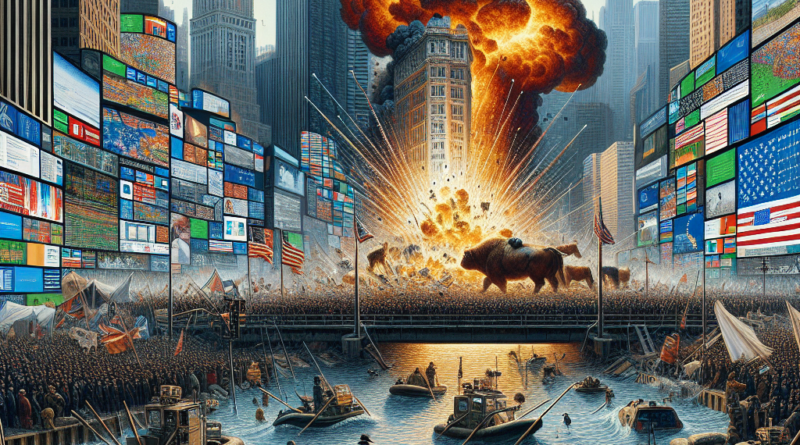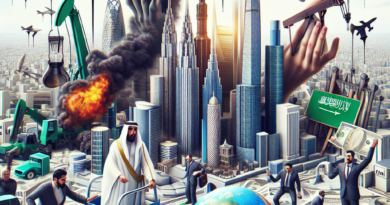How Putin plans to collapse Russia’s economy
The Resilience of the Russian Economy Amidst Sanctions
Following the invasion of Ukraine by the Kremlin in February 2022, a wave of international outrage ensued, resulting in various sanctions aimed at weakening Putin’s ability to declare war on Kiev.
Foreign assets of Russia were frozen, its economy was cut off from the global financial system, and its exports were boycotted.
Initially described as “paralyzing”, “crippling” and “unprecedented”, the sanctions did not have the expected impact on the Russian economy.
26 months later, the war continues, and the Russian economy is not only afloat but even growing.
According to the IMF, Russia’s GDP is expected to rise by 3.2% in 2024, surpassing that of any other advanced economy.
The Effectiveness of Sanctions
The so-called “crippling” sanctions did not lead to shortages in stores; Russian supermarket shelves remain stocked, albeit with higher prices.
Despite some Western companies exiting the market as a form of protest, many products still find their way into Russia.
Rather than succumbing to Western pressure, Russia focused on developing new markets in the East and South.
One lesson learned from this situation is that while sanctions can temporarily disrupt a country’s balance, they can also prompt the search for alternative solutions.
Moscow redirected its oil exports from Europe to China and India, successfully circumventing price caps imposed by the G7 and the EU.
Despite challenges, Russia’s energy flows continue, with China emerging as a key economic partner.
The Role of China in Russia’s Economy
China has become a lifeline for the Russian economy, with bilateral trade reaching a record $240 billion.
Chinese electronics flood Russian stores, Chinese dealers dominate the local automotive market, and the defense industry has seen a surge in activity since the conflict in Ukraine began.
Increased military spending, however, comes at a cost.
Long-term imbalances could jeopardize Russia’s economic stability, especially if investments in other crucial sectors are neglected.
While Russia had planned substantial infrastructure investments pre-war, these funds were redirected to the military-industrial complex.
Future Challenges and Potential Crisis
After over two years of war, the Russian economy has withstood the pressures, but new challenges loom.
The US is considering further sanctions on foreign banks facilitating transactions with Moscow, which could exacerbate existing difficulties.
Shortages of imported goods are beginning to be felt, and spare parts are increasingly scarce.
Without resolution, Russia may face a financial crisis by autumn.
The resilience shown by the Russian economy in the face of sanctions and conflict is remarkable, but future stability hinges on addressing mounting economic challenges.




